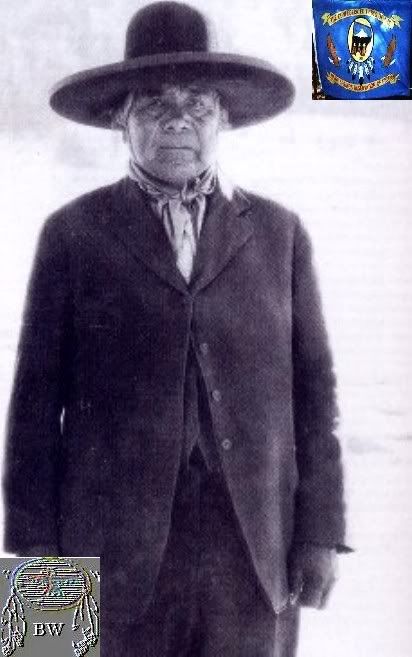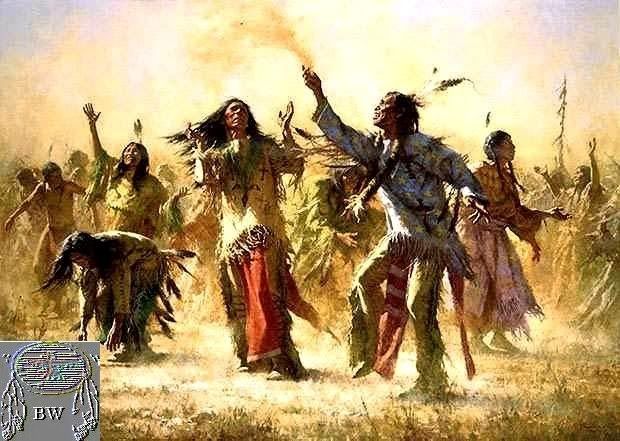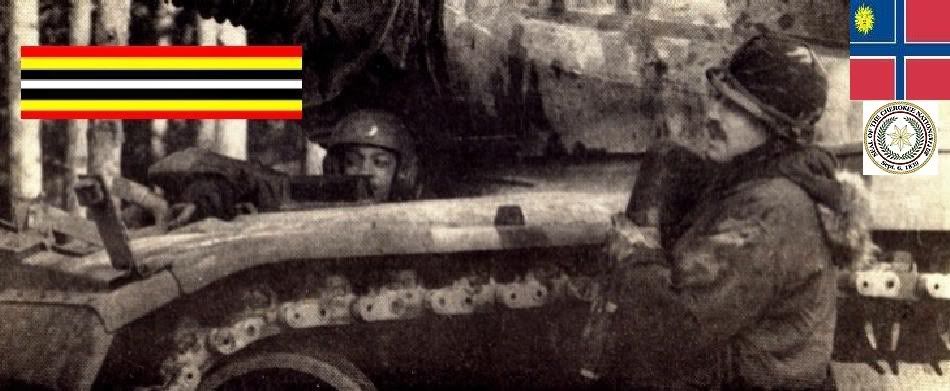|

Chief Jack Wilson
(1856-1932)
Warriors Citation
Born along the Walker River in Mason Valley, Nevada, Wovoka ("The Cutter") is usually said to be the son of Tavibo, a Paiute
spiritual leader. As a youth, Wovoka learned the spiritual ways of Tovibo and also knew of the prophetic messages of John
Slocum and Smohalla. As a teenager, Wovoka also lived for a while with a white family of devout Christians, the Wilsons, on
a ranch in western Nevada. As a result, he became known to them as Jack Wilson.
Wovoka caught a severe fever in late 1888. Delirious during a solar eclipse on January 1, 1889, Wovoka later stated that he
had been transported to the spirit world and had communed with the Great Spirit. After this visit with the Creator, he believed
he was to carry a message that the earth would come to an end but then regenerate itself into a place only for Native Americans
and the new messiah. This rebirth world would be for all Native peoples, dead and alive. Thus, Wovoka talked of a new existence
free from suffering. To gain this new existence, Native Americans must live in honesty and harmony, purify themselves often,
and avoid Euro-American habits, particularly alcohol. Similarly, he deemphasized the importance of mourning, since he prophesied
that the deceased would be reborn soon. He sought to replace these mourning practices with meditation, prayers, singing, and
most importantly, dancing the Ghost Dance, in which men and woman held hands in large circles and danced slowly while singing
prescribed songs.

He contended that through the Ghost Dance a follower might die for a few moments and gain a brief vision of the new paradise
for Indians - a world of verdant prairie grasses, large buffalo herds, and all of one's relatives. This powerful spiritual
message spread rapidly through the Native American boarding schools and thence to reservation communities, particularly the
Arapaho, Cheyenne, Shoshoni, and Lakota. As a result of his prophesies, his devotees considered him to be the "Red" messiah
and called him the "Red Man's Christ." Many of the Lakota people, seeking solace for their defeats, developed a new militance
after a group of eleven of their leaders, including Short Bull and Kicking Bear, traveled to see Wovoka in Nevada during the
winter of 1889-1890. Interpreting Wovoka's words to suit their agenda, these leaders chose to heighten his message about the
eventual elimination of whites from the Americas. Special Ghost Dance shirts could stop bullets, according to some interpretations.
The Ghost Dance and Wovoka's message caused white authorities to become nervous. The military decided to intervene and forcibly
stop the dances. This resulted in the death of Sitting Bull and the slaughter of Big Foot's band at Wounded Knee in December
1890. Wovoka, appalled by the violence, counseled peace with the white population. Subsequently, the Ghost Dance religion
subsided, but some groups, including the Cheyenne and Arapaho, have kept some aspects of the rituals in other tribal ceremonies.
Wovoka and his wife, Mary, had three daughters and a son. He died near Schurz, Nevada, on the Walker River Reservation. From:
historical accounts & records


LINK TO BRAVEHORSE WARRIORS VOLUME TWO
|

